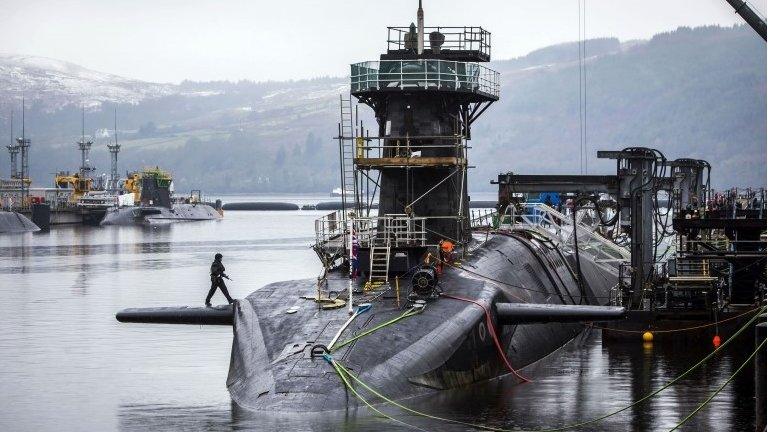Theresa May 'faith' in Trident after test 'malfunction'
- Published
The prime minister declined four times to answer questions about when she had been aware of the "misfire'"
Theresa May says she has "absolute faith" in the UK's nuclear weapons system despite reports that an unarmed missile went off course during a test.
The Sunday Times , externalsays the missile, fired in June, veered off course, weeks before a crucial Commons vote on Trident's future.
When questioned by the BBC, Mrs May repeatedly refused to say if she knew about the misfire ahead of the vote.
Nicola Sturgeon said it was a "hugely serious issue".
Scotland's First Minister, who is a passionate opponent of Trident, tweeted: "There should be full disclosure of what happened, who knew what/when, and why the House of Commons wasn't told."
Meanwhile Labour Leader Jeremy Corbyn said it called for "a serious discussion".
He told Sky News: "It's a pretty catastrophic error when a missile goes in the wrong direction, and while it wasn't armed, goodness knows what the consequences of that could have been."
'Urgent inquiry'
In July, weeks after the test and days after Mrs May became prime minister, MPs voted overwhelmingly to spend up to £40bn on replacing Trident.
But when asked by BBC's Andrew Marr whether she knew then that the misfire had happened, she said: "I have absolute faith in our Trident missiles. When I made that speech in the House of Commons, what we were talking about was whether or not we should renew our Trident."
She was asked a further three times but she did not answer the question.
The Ministry of Defence did not give details of the test process but said it was a success.
Labour former defence minister Kevan Jones has demanded an inquiry into the claims, telling the Sunday Times: "The UK's independent nuclear deterrent is a vital cornerstone for the nation's defence.
"Ministers should come clean if there are problems and there should be an urgent inquiry into what happened."
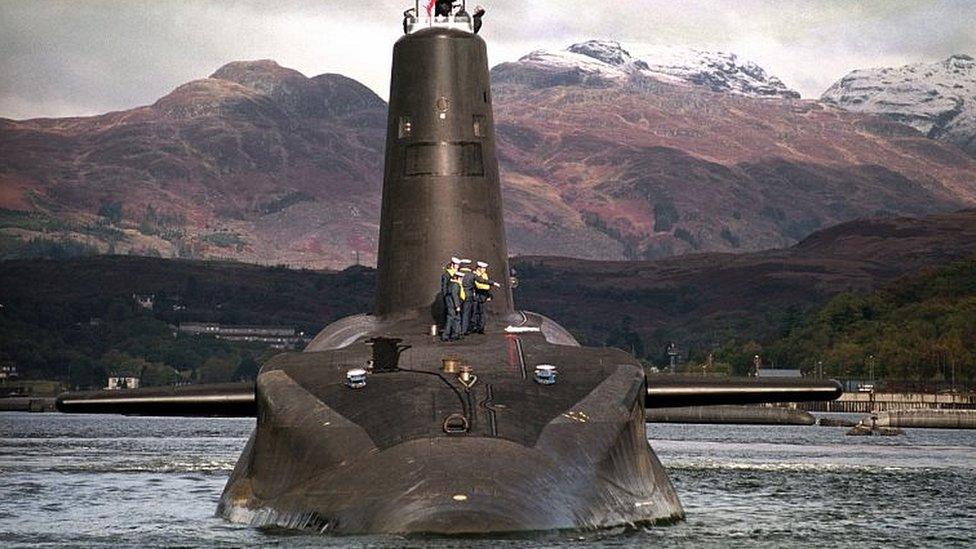
The cost of building four replacement submarines is currently estimated at £31bn
The Sunday Times says the test fire was launched from HMS Vengeance off the coast of Florida.
It says the Trident II D5 missile was intended to be fired 5,600 miles (9,012 km) to a sea target off the west coast of Africa but veered towards the US.
The cause remains top secret, the paper adds, but quotes a senior naval source as saying the missile suffered an in-flight malfunction after launching out of the water.
HMS Vengeance, one of the UK's four Vanguard-class submarines, returned to sea for trials in December 2015 after a £350m refit, which included the installation of new missile launch equipment and upgraded computer systems.
According to the Sunday Times, it is expected that Defence Secretary Michael Fallon will be called to the Commons to answer questions from MPs.
In July, MPs backed the renewal of Trident by 472 votes to 117, approving the manufacture of four replacement submarines at a current estimated cost of £31bn.
During the debate Mrs May made clear she would be willing to authorise a nuclear strike, capable of killing 100,000 people.
The Campaign for Nuclear Disarmament (CND) described reports of a misfire as a "very serious failure".
"There's absolutely no doubt that this would have impacted on the debate in Parliament on Trident replacement," General Secretary Kate Hudson said.
"Nuclear weapons technology is not 100% failsafe. In so many ways it is a disaster waiting to happen, the consequences of which are too terrible to comprehend," she added.
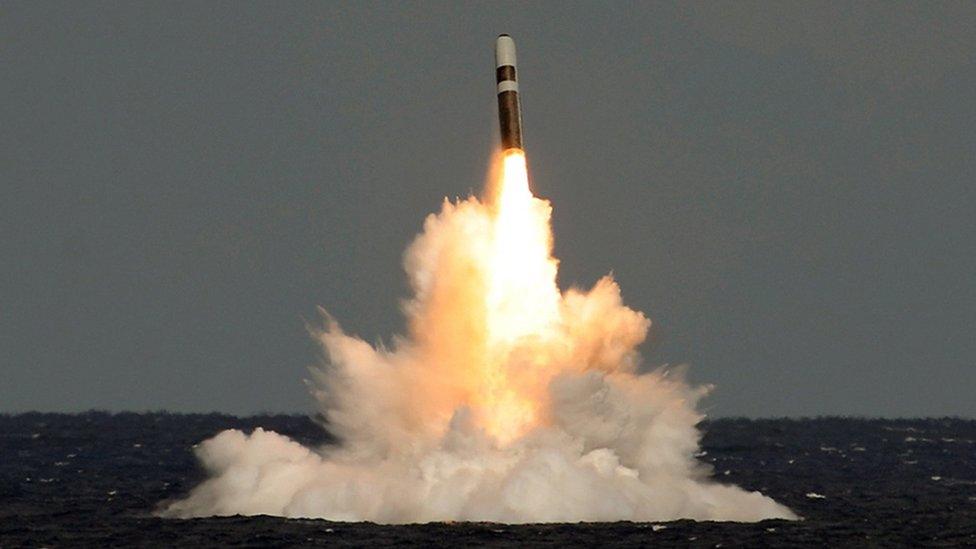
The MoD said the capability and effectiveness of the Trident missile was 'unquestionable'
BBC defence correspondent Jonathan Beale said while the MoD has described the test as a success for the crew and the boat, it has not denied the report that the missile itself might have veered off course.
In the past the MoD has issued a press release and video of successful tests but its silence on this occasion has raised questions as to whether any fault was deliberately kept quiet ahead of the key vote, our correspondent added.
Labour's official policy is to support renewing the Trident system, but leader Mr Corbyn - a longstanding opponent of nuclear weapons - wants to change the party's position and has launched a defence review to examine the issue.
Ms Sturgeon has described the nuclear weapons system as "immoral" and "impractical".
All 52 SNP MPs voted against its renewal in the House of Commons vote.
A statement issued by both Downing St and the MoD said: "The capability and effectiveness of the Trident missile, should we ever need to employ it, is unquestionable.
"In June the Royal Navy conducted a routine unarmed Trident missile test launch from HMS Vengeance, as part of an operation which is designed to certify the submarine and its crew.
"Vengeance and her crew were successfully tested and certified, allowing Vengeance to return into service. We have absolute confidence in our independent nuclear deterrent.
"We do not provide further details on submarine operations for obvious national security reasons."

What is Trident?
The Trident system was acquired by the Thatcher government in the early 1980s as a replacement for the Polaris missile system, which the UK had possessed since the 1960s.
Trident came into use in the 1990s. There are three parts to it - submarines, missiles and warheads. Although each component has years of use left, they cannot last indefinitely.
The current generation of four submarines would begin to end their working lives some time in the late 2020s.
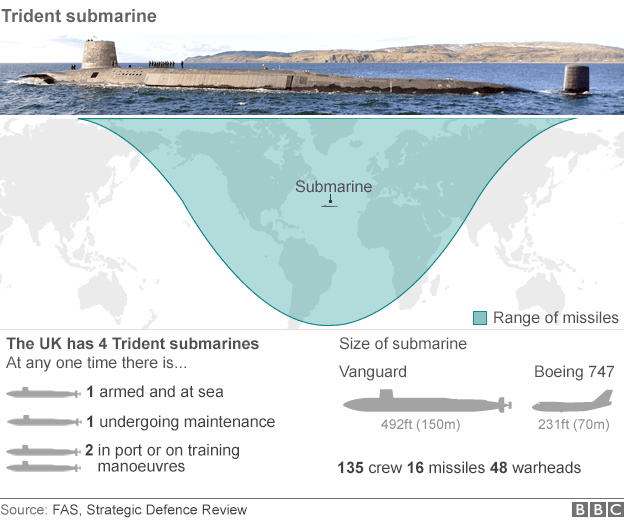
- Published14 October 2016

- Published19 July 2016
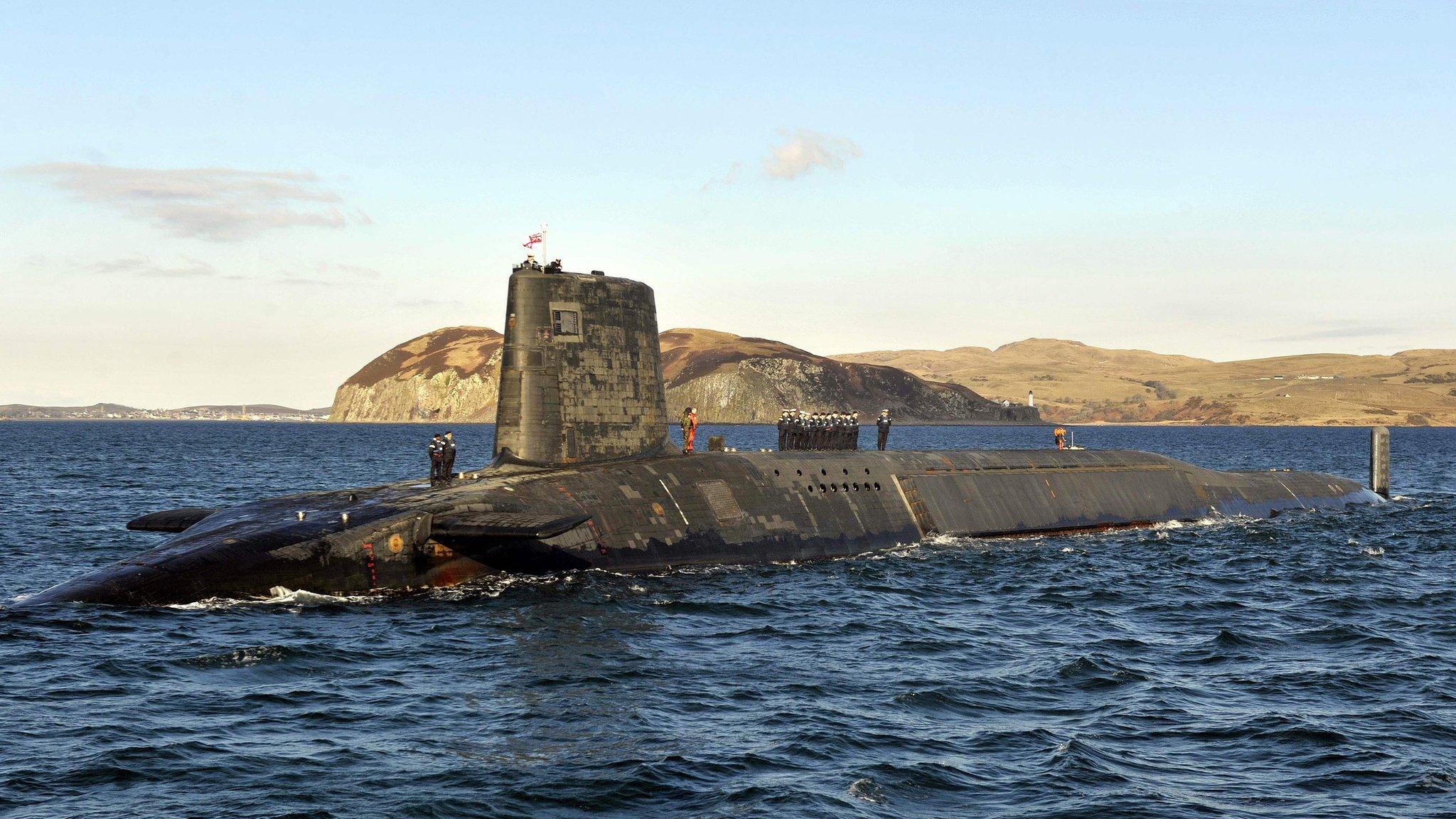
- Published18 July 2016
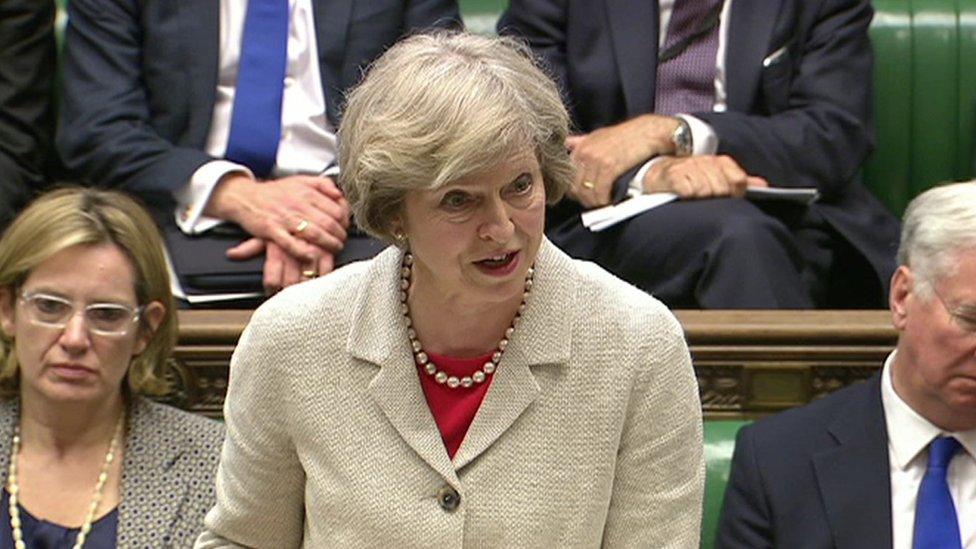
- Published17 July 2016
